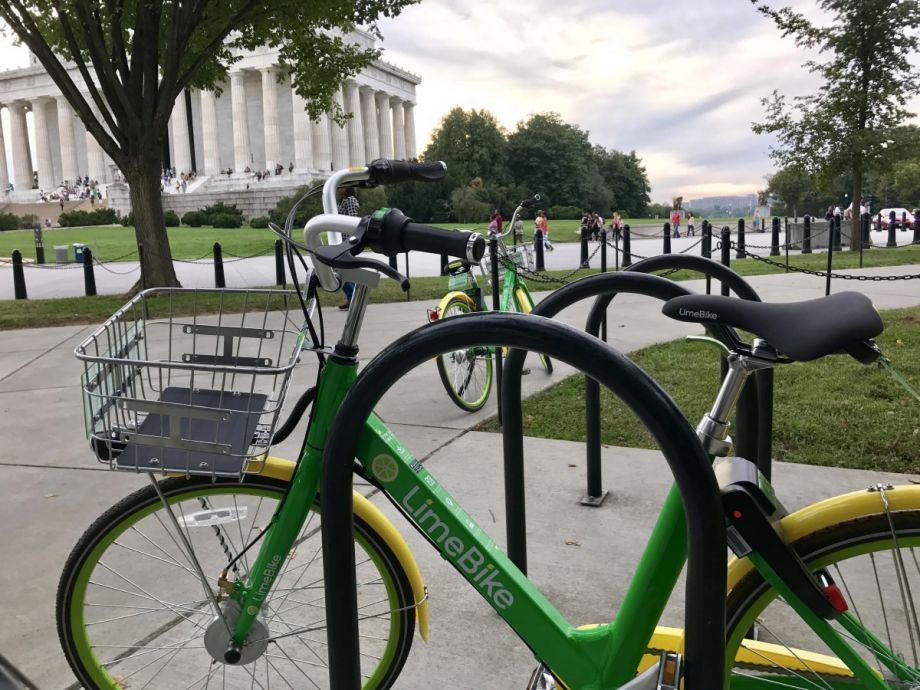Clik here to view.

Dockless bikes in D.C. (Photo by Joe Flood/Flickr)
Dockless scooters and bike-share systems are having a mixed week, with scooters launching in multiple new markets but companies poised to pull out of others, citing unnecessary regulations that cause hassles for riders.
In Indianapolis, the City-County Council’s public works committee is scheduled to vote Thursday night on regulations that would cover permitting and fee structures for operators, accountability and “where they’re allowed to park these things,” council vice president Zach Adamson told the Indianapolis Business Journal. If the regulations pass, they must also pass the full council.
Adamson also told the IBJ that the new regulations won’t change current laws that prohibit scooters from being ridden on sidewalks.
The proposed regs are a compromise; council president Vop Osili had initially proposed banning all dockless vehicles, but now says he is willing to try a “pilot phase to see how these roll.”
Elsewhere in the Midwest, dockless scooters have landed in Milwaukee, with Bird dropping off about 60 scooters in one neighborhood, Urban Milwaukee reports. The outlet also reports that Lime is in discussions with the city to launch.
Meanwhile, in Dallas, a months-long debate about dockless bike-share programs — which turned controversial as residents complained about the tens of thousands of bicycles, neighborhoods banned the bikes outright and businesses started calling them “road kill” — came to an end Wednesday as the city council approved an ordinance regulating the bikes and paving the way for electric scooters. CBS News reports that firms will now have to pay the city $21 per vehicle per year. The ordinance also states that a bike cannot sit in a residential neighborhood for more than two days without being moved, and cannot be parked on sidewalks narrower than eight feet.
Dallas residents had phoned in 3,200 complaints about the bikes since they landed in the city last September, CBS says.
And finally, in Chicago, dockless bike-share companies are warning that the city’s “lock-to” requirement will cause them to pull out of the city, the Chicago Tribune reported. Under regulations adopted in April, as Next City reported earlier this year, all bikes in an operator’s fleet must be able to be locked to something, rather than using the wheel-lock system favored by operators like ofo and Lime.
Calling it an “unnecessary hassle” for riders, the companies are asking the city to eliminate that requirement entirely, the Tribune said. Gabriel Scheer, director of strategic development for Lime, told the Tribune that Lime isn’t going to modify its bikes to comply with the rule. Besides, in the neighborhood where the bikes are being piloted, there aren’t enough bike racks to go around, he said.
No other city has a lock-to requirement, they say, although Massachusetts-based Zagster, which operates a dockless bike-share system called Pace, welcomes the rule, as its bikes come with built-in locks. “We really think locking to something is a policy that should be pushed forward by cities,” Dave Reed, Chicago market manager for Zagster, told the Tribune in May.
If the requirement isn’t lifted, both ofo and Lime could leave Chicago as soon as Sunday.
“We really don’t want to leave Chicago,” Scheer said. “Our goal is to work with the city to see how we can all be happy with the situation.”